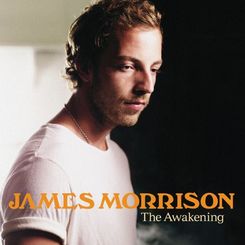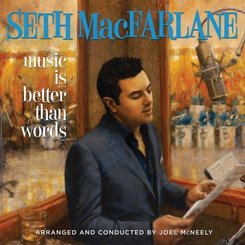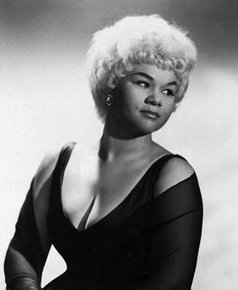



|
Profiling great and underrated music from 4 awesome artists. Hit the artist's picture to visit their respective site. To submit an artist for future "You Should Hear This" profiles, hit the 'Contact/Info' tab and fill out the form.  Dawn Richard Springing from the now defunct R&B/pop group Danity Kane, singer/songwriter Dawn Richard landed in the hip-hop/R&B trio Diddy Dirty Money and received rave reviews with the experimental debut, “Last Train to Paris.” Now, while DDM is on hiatus, Richard has released a mixtape (A Tell-Tale Heart) and additional free music on her site, dawnrichardblog.com. “Save Me from You” is the latest song/music video to be uploaded (you can watch it below). I chose to profile this song because I find the writing to be interesting. Most lyrics relating heroism and romance have the usual approach of depicting the lover as a gracious savior for the other. “Save Me from You” is a bit different; Richard’s lover is a hero for everyone else and inflicts pain upon her, of which she wants to be rescued. I wish the accompanying music video better reflected the lyrics, but I imagine the budget for independent work isn’t as abundant.  James Morrison is a soulful acoustic-rock singer from England who reached instant popularity overseas with his debut single “You Give Me Something” in 2006. Morrison went on to win 3 BRIT Awards and all of 3 of his albums have gone platinum in the U.K., including the latest “The Awakening.” While Morrison has yet to have an official U.S. release (“Awakening” is only available through ITunes U.S.), one is likely to come as two of his most popular singles feature American artists Nelly Furtado and Jason Mraz. Growing up listening to his mother’s soul records and his father’s rock collection, Morrison cites Stevie Wonder, Van Morrison, Al Green and Otis Redding as influences. You can hear the song “Better Man” (which I first heard on the soap opera “General Hospital”) below with 2 “Awakening” album samplers from Morrison’s Youtube channel.  When Seth MacFarlane makes news, it’s usually for the unfiltered socio-political and pop culture commentary on his T.V. cartoon-comedies “Family Guy” and “American Dad.” This time, it’s for his music. Yes, you read correctly, his MUSIC. A lover of 1940’s and 1950’s big-band, swing and jazz, MacFarlane gets his Sinatra on with the release “Music is Better Than Words.” If the fact that he has an album isn’t surprising enough, MacFarlane is actually a fantastic singer. Smooth, strong and crisp, his voice is beyond pleasing to the ears. Check out “Love Won’t Let You Get Away” with Sara Bareillis below.  Out of all of the artists I’m profiling today, I’m most excited about The Seatbelts. Based out of Japan, The Seatbelts are lead by sound producer Yoko Kanno. Intentionally ambiguous, it’s hard to find extensive information about the group or individual band members. With no official website, their Facebook page leads to a somewhat disorganized Japanese-language music purchasing site that lists works by Kanno and her sporadic collaborations with one or two Seatbelts members. Their Wikipedia page is the most informative and comprehensive resource I found (click the photo to view it). According to the article, The Seatbelts discography consists of only soundtrack albums for the anime series “Cowboy Bebop” and there no American releases. It also purports that group disbanded in 2004. I heard about this band through a friend and I became immensely intrigued after listening to only two songs. The band is extremely eclectic, having material that is core jazz, pop, hip-hop, rock, funk and electronic. Majority of their work is instrumental, but there is a healthy portion that features an array of Japanese vocalists. Listen to jazzy and soothing “Diamonds” (featuring Ilaria Graziano) and the funky, rock-soul “Gotta Knock a Little Harder” (featuring Mai Yamane) below.
0 Comments
 Best known for the classic, "At Last," Etta James started her career recording what would become soul, blues, rock n' roll and jazz staples at age 15 and is considered to be one of the most emotive and versatile artists in history. Instantly making an impact, James was admired by younger artists who eagerly wanted to cover her songs, such as Janis Joplin, who covered 1968's "Tell Mama" in the 1970's. After several hits and much success through the 1950's and '60s, James battled alcoholism and drug abuse, but made her way back to prominence in the 1980's and ultimately received 6 Grammys and 17 Blues Music Awards. She is an inductee in the Grammy Hall of Fame, Rock N' Roll Hall of Fame and Blues Hall of Fame. James succumbed to leukemia today at age 73. Below is a small gallery, the song "At Last" and a great cover of "Trust in Me" by Beyonce`, who portrayed James in the film "Cadillac Records."  Hit Team: T. Stewart, Rihanna & The Dream Hit Team: T. Stewart, Rihanna & The Dream Many recording artists like Kelly Clarkson, Robin Thicke and Beyonce` have complained about record label executives dictating album material and emphasizing the importance of “making a hit” for their financial gain. This isn’t a new or unheard of concept, but what’s surprising is how much labels spend to increase their chances of having a “hit smash.” According to a report by NPR.org, record labels design “writing camps,” where the hottest writers and producers are recruited to gather and crank out songs over a given period. Producers show up with their arsenal of pre-made tracks, and the summoned writers either pen lyrics based on what they’ve heard right then or fit already-written material to the track. After the music and lyrics are married (in some cases via demo), record executives/or the recording artist choose what songs they like best. Once the songs are selected for studio recording, a vocal producer (or the song’s producer) meets with the artist to execute. Fast forward through a couple of board meetings, listening meetings, legalities, final mastering and album photo-shoots, and you have a finished product ready to go on shelves (that’s the abridged, nutshell version of the remaining process). Pulling from NPR’s estimates, a label is liable to shell out $35,000 per song to pay both writers and producers and then another $15,000 for a vocal producer. Studio costs per day can be up to $25,000 and final mixing and mastering costs around $10,000. The next major step in “manufacturing a hit” is promotion and radio/music-video play, which can vary in cost. In regards to radio, payola, the illegal practice of offering payment for broadcasting, is still an active part of airwave promotion. To avoid getting busted by the law, money may not blatantly exchange direct hands, but insiders take advantage of having acquaintances in radio, if not for making some new “friends.” Most stations purport that playlists are now based on audience market research results, but some still question broadcast practices. Promotional costs (which can include the artist’s air fare, advertisement spots, etc.) can reach up to 1 million. With this type of expensive bill, I imagine record labels get testy when singles like Rihanna’s “Man Down,” which is anticipated to be a smash, under-perform. Artists generally don’t see a dime from their own record sales until the label has recouped all of their expenditures. In the event that the finances are not returned, an artist may be indebted to the record label, get released from their contract or dropped. Sometimes artists get bogusly blamed for under-performance, particularly if they’ve had artistic input. On one season of MTV’s “Making the Band,” P. Diddy implied to Donny Klang that his single at the time wasn’t taking off because he wasn’t promoting it enough himself. My beef with these camp systems is that they kill the existence of custom-made quality songs. The tracks aren’t built around the lyrics and the lyrics aren’t built around the artist. That sucks all the heart and soul out of the music. How can you expect for an artist to perform a song with feeling when all they did was come in and record what someone else molded together? Artists who gain more creative control and input can add a personal touch, but even those with producing or writing prowess like Robin Thicke, get their neck stepped on by label associates who are only concerned with the financial end; as if quality music won’t bring in quality dollars (some make the argument that only shallow music garners the big bucks, but those who make quality music have longevity and generate dollars more consistently). Thicke stated in a magazine interview that exec Jimmy Iovine told him that they would have to hand out narcolepsy pills with “The Evolution of Robin Thicke” and wanted the singer to “make Billie Jean” and reshape the project. As it was, “The Evolution” ended up making Thicke a household name, despite Iovine’s predictions.
Camp systems also allow room for producers and writers to be lazy and not give their best. Heavily requested because they’re “the hottest producer (or writer) out there,” they try to meet the high demand, which can lead to the same tracks and lyrics being rearranged, matched and reused to save time. If two songs sound similar, it’s likely that the same person produced it. The record label just paid $35,000 for a song that’s essentially recycled. Hmph. Song recycling and recruitment of the same 5 popular hit-makers ultimately leads to redundancy in mainstream music and fatigued listeners, who feel that much less inspired to legally purchase music. If listeners don’t feel like a song or album is worth their dime and they don’t pull out their wallet, record label income reduces and the artists make even less. Writing camps are designed to make bank for record labels and save time, but one could argue they do anything but. As confirmed by representatives for Beyonce`, the pop-star gave birth to a baby girl Saturday. See the official statement and hear Jay-z's tribute song for his new daughter here: http://jsays.weebly.com/8/post/2012/01/jay-zs-song-for-his-newborn-leaks.html
|
Entertainment
Rants and raves about all things entertainment industry. Includes my own movie, music and concert reviews. You can find topics under "Tags and Categories" below. Archives
April 2024
Tags/Categories
All
|